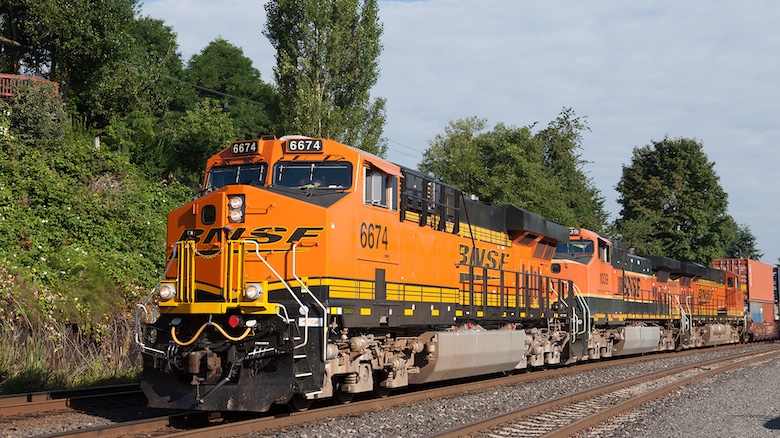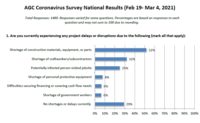Contractors and construction materials suppliers are calling on the U.S. Senate to pass an emergency bill that cleared the House of Representatives on Nov. 30 that would impose a tentative agreement reached by freight rail companies and labor unions brokered in September by the Biden administration, to head off a possible Dec. 9 strike.
Despite progress on Capitol Hill, industry groups are still jittery about possible interruptions to the flow of construction materials and other frieight across the country.
“The potential for significant disruption in the critical national rail system would have serious consequences for the domestic steel industry and the entire U.S. economy," said American Iron and Steel Institute President and CEO Kevin Dempsey in a letter to congressional leadership. The group represents steelmakers such as Nucor and U.S. Steel.
The House passed a bill that would impose the agreement negotiated by Labor Secretary Marty Walsh on 12 rail unions involved, but it also passed a separate bill that would add seven days of paid sick leave a year for union members that the unions sought during negotiations. Under current arrangements, freight rail union workers receive no paid sick days in a given year. Because the bills were passed separately, the agreement could be approved by the Senate and the sick leave proposal rejected.
The transportation division of the SMART union, one of four whose members rejected the deal, said Congress should not intervene.
"The SMART Transportation Division does not support the notion of Congress intervening in our collective bargaining negotiations to prevent a strike. We firmly believe in the workers’ right to fight for their own best interests, as well as the best interests of their families." the union division said. "Unfortunately, threats to the economy have caused this Congress to believe that a strike aversion is the best course for this nation."
Possible Impacts on Construction
The Associated General Contractors of America said that even a short work stoppage would cause a disruption that could cost project owners billions.
"We are strongly urging Congress to act quickly to avert a rail strike. Allowing a disruption to the nation’s rail network to occur would be catastrophic for the construction industry and the broader economy. Construction firms rely on freight railroads to deliver a wide range of construction materials that are essential to completing projects. Disrupting those deliveries would only exacerbate supply chain challenges that have been inflating the cost of construction and leading to many delays," said Brian Turmail, vice president of public affairs and strategic initiatives.
The Associated Builders and Contractors of America also urged Congress to intervene, joining more than 400 organizations in a letter urging efforts to avoid a freight rail strike and shutdown. The groups said a stoppage of rail service would be "extremely damaging to American families and our economy, costing an estimated $2 billion per day."
North America's Building Trade Unions did not immediately respond to requests for comment but is expected to support the rail unions in any potential strike.






Post a comment to this article
Report Abusive Comment